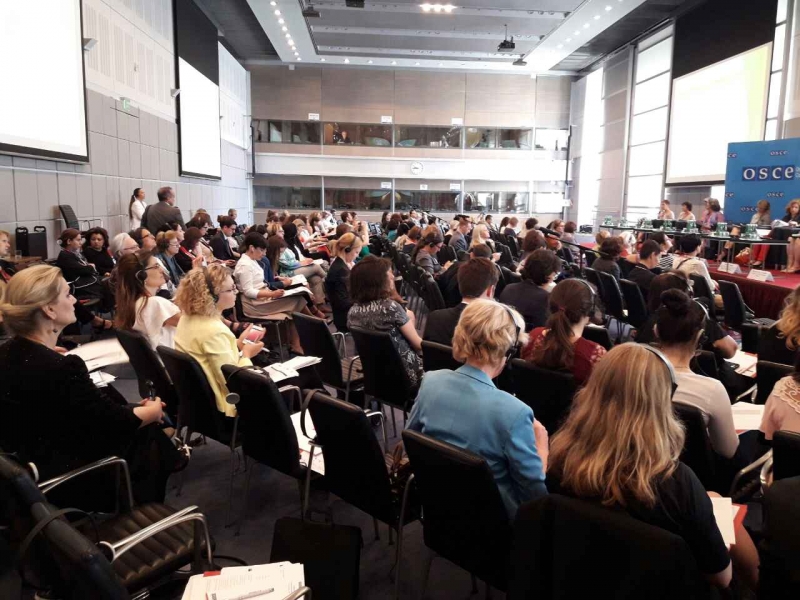The conference was held on the topic of implementation of the 2004 OSCE Action Plan for Promotion of Gender Equality and it represented a platform for the exchange of opinions among representatives of the OSCE participating States, civil society organisations and academia on the progress achieved in the implementation of the Action Plan, examples of good practice, challenges and open issues, as well as consideration of further activities.
The conference was opened at the introductory panel with opening remarks by Ms Sophie Karmasin, Federal Minister for Families and Youth of Austria, Ms Katarzyna Gardapkhadze, First Deputy Director of the ODIHR, and Ambassador Mr Paul Bekkers, Director of the Office of OSCE Secretary General.
Within six separate working panels, there were discussions on participation of women in defence sector, political and public life, equal economic opportunities, and economic empowerment of women, combat against gender-based violence, and strengthening of institutional mechanisms for achieving gender equality.
A member of the Gender Equality Committee Ms Branka Tanasijević took part in four panel discussions: “Women’s participation in political and public life”, “Combating gender-based violence”, “Strengthening Institutional Mechanisms for Gender Mainstreaming – Challenges and Perspectives”, and “Emerging issues and ways forward to implement the 2004 OSCE Gender Action Plan”.
The first OSCE Gender Equality Review Conference was held in 2014, marking ten years since the adoption of the OSCE Action Plan for Promotion of Gender Equality as significant orientation document calling for analysis of different impact which the OSCE policies, programmes and projects have on women and men, and the effectiveness analysis of the OSCE member states in meeting their obligations in the field of gender equality.












